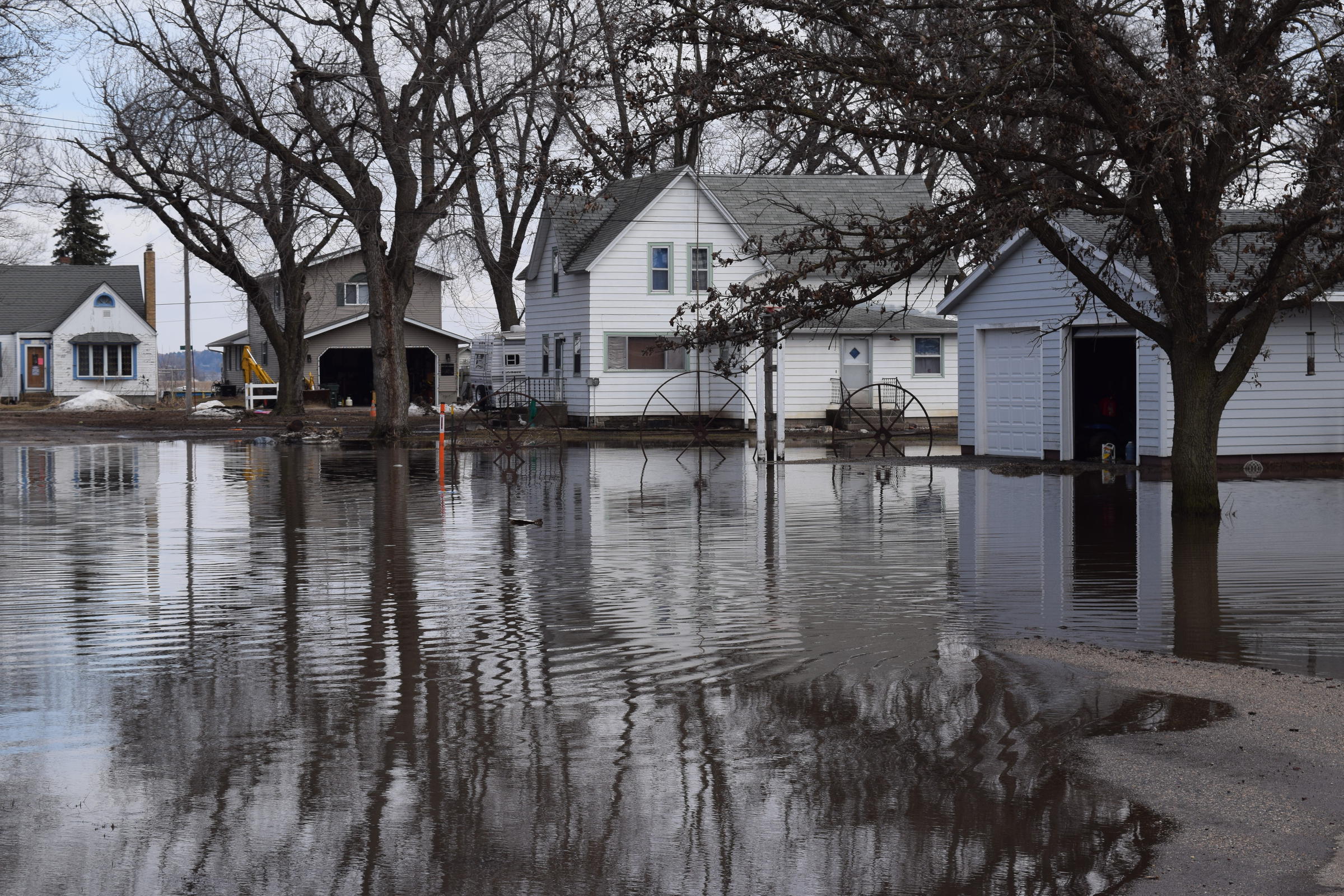
Low-income communities hit hard by natural disasters recover more slowly than wealthier communities do, according to a new report from the Iowa Policy Project.
During a call with reporters Thursday, report author and University of Iowa graduate student Joe Wilensky pointed out that people who live in communities that flood frequently often live below the poverty level. They suffer the worst and recover more slowly. That includes communities in western Iowa hit hard by Missouri River flooding last spring, he said.
“These communities are themselves set up for a disaster down the road and continuing downward spiral and being trapped where they are until the community can’t take it anymore and has scattered,” Wilensky said, “or they’re just continually suffering over and over as these disasters strike.”
According to the report, low-income "frontline" communities have lower resiliency because, "Low-income communities are often located in areas more susceptible to damage, such as areas along fault lines or in flood plains." Homes in flood plains tend to be cheaper, so low-income residents end up in areas that are more disaster-prone. Once a flood or another disaster happens, there's a gap between a community’s immediate needs after a disaster, recovery funding that may only be a small amount, and additional recovery funding that could take months to reach communities.
“If you are a low income person, you can’t just say, ‘okay I’ll use some of my savings until the FEMA money comes.’ You don’t have any savings,” said David Osterberg, the founder of the Iowa Policy Project. “Having so many people who just are at the edge and then experience a disaster, boy it makes it hard for them."
States have a larger part to play in giving assistance to communities hit by disasters, Wilensky said. Though the state provides assistance for disasters, this help ends when the federal government declares it will get involved in a community’s recovery.
“And there can be a really large lag between when a disaster is actually declared versus when it actually arrives in the community,” Wilensky said. “…You leave people with an unfunded gap that more impoverished communities have a much harder time than communities of greater means.”
The study continues earlier research from the Iowa Policy Project, which released a paper in September on how climate change could bring more historic flooding to the Midwest. Extreme rainfall is becoming more common, which is tied to flooding, Osterberg said.
“And when the flooding comes, boy, you don’t want to be poor," he said.
The report recommends looking into ways to give a bigger boost to lower income communities trying to recover from disasters. That way they have the same chance at recovering and getting back to normal as wealthier communities. Osterberg later added in an email to Iowa Public Radio, "We need to go beyond equal treatment of each family since a flood does not effect each family the same. Frontline communities need more."
Communities in southwest Iowa are still recovering from last spring’s Missouri River flooding. Forecasts point to the possibility of more flooding next spring.